8 reasons why we love science even more

(Shutterstock Image)
Dear Science — this week, the Pulse team crafted a special show that’s like a love letter to you. Here are all the reasons we love science even more than before.
Dear Science,
This week, the Pulse team crafted a special show that’s like a love letter to you.
You must know that we love you, because we talk about you so much, and we dedicate so much of our show every week to preach your gospel. (Oh, do you hate that metaphor? Sorry.)
But, we wanted you to really know that we appreciate the many ways, big and small, that you make our lives richer and better. You combat disease and death, allow us to grasp a vast universe and tiny organisms. Your achievements illuminate our homes, our computer screens, and our minds.
No letter could be long enough to capture all of the reasons why we love you, so we curated a few humble examples — eight to be exact. (We know you like precision.)
1. A deeper understanding of processes we take for granted
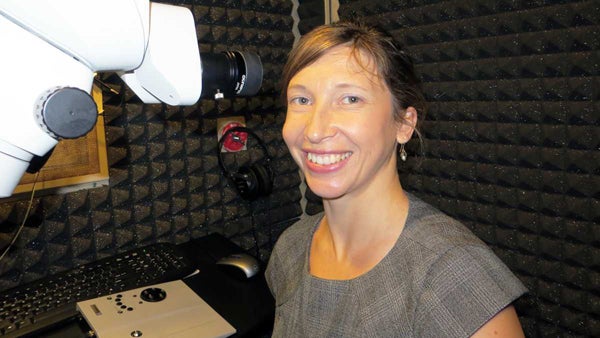
Let’s say somebody says the word “hot.” The mechanics of the sound waves hitting the eardrum are well understood. But how do our brains extract meaning from the word?
Penn Medicine researcher Maria Geffen is fascinated by that question, and tries to untangle sound and meaning in her experiments. Reporter Taunya English met up with Geffen — who played some deconstructed sounds for her:
Geffen says understanding the process of hearing and assigning meaning better could eventually lead to better hearing aids and cochlear implants.
2. Simple experiments, big ‘a-ha!’ moments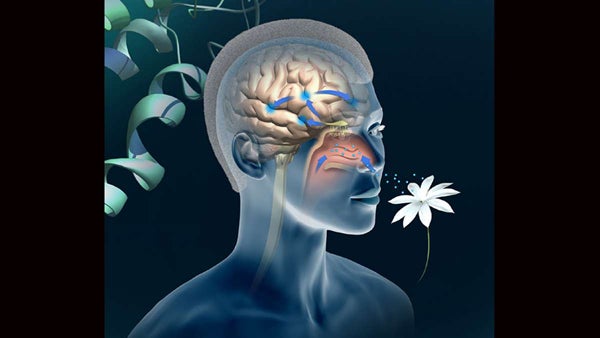
Sometimes, a quick science experiment can shed light on an important connection that we have taken for granted, or perhaps never even thought about.
Taunya English observed this experiment at Phildelphia’s Monell Chemical Senses Center, with director Gary Beauchamp — it illustrates the strong connection between our sense of smell and taste. And, bonus points, it involves jelly beans!
Researchers at Monell and Jefferson are trying to engineer stem cells to become functioning nerve cells that control smell, to see if they could restore olfactory function in people who have lost their sense of smell.
3. Fun and pink flamingos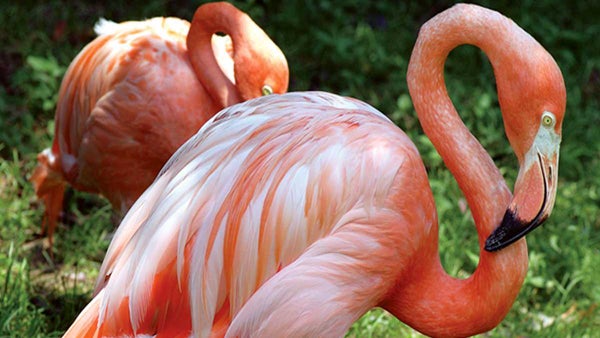
Science, so often you are accused of being “no fun.” Oh, what a tragic misconception, when so much of what you do is so very entertaining! Take for example the social lives of pink flamingos. Here, people thought flamingos just stood around on one leg, occasionally shaking their pink feathers, when that’s so far from the truth.
St. Joseph’s University psychologist Matthew Anderson researches Caribbean flamingo behavior at the Philadelphia Zoo to find keys to human behavior:
4. A sense of humor while fielding silly questions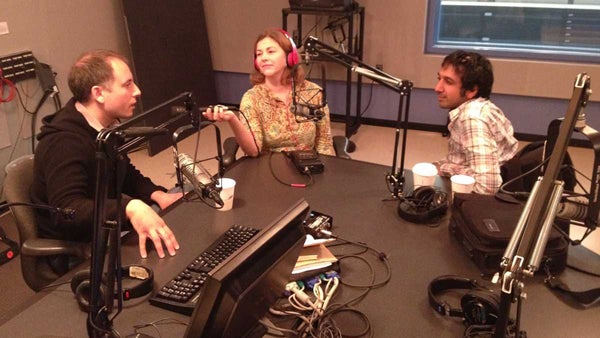
We at The Pulse occasionally like to study scientists outside of their natural habitat, in a radio studio. We bring them in for a segment called “So, what do you do?” where we observe their interactions with a species unfamiliar to them: “lay people.” And sometimes, these lay people throw a big unscientific curve ball.
That’s what happened when evolutionary biologist and geneticist Rob Kulathinal of Temple University spoke with New Jersey writer Matt Skoufalos — but Kulathinal handled the questions like a pro:
5. Finding ways to do everything better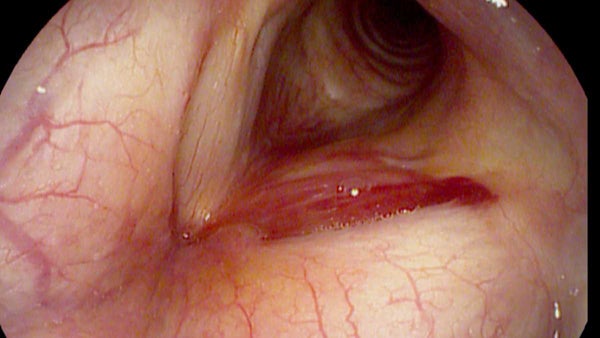
Scientists and researchers often enable us to do our jobs better … even Broadway singers like Jarrod Spector, who has to be very careful not to damage his voice during hours and hours of performing.
Reporter Christopher Intagliata investigated the research that allows broadway stars to perform night after night after night without injuring their vocal cords. That’s how he met Brian Gill, director of vocal pedagogy in music and performing arts professions in the Steinhardt School at New York University. Gill gave Intagliata a little lesson in physics:
6. Explaining the things that get on our last nerves
Why are so many people talking so strangely — especially young women? That is a question of style and preference, but science allows us to understand the process of what’s happening. Regular contributor Bethany Brookshire of Science New explained the mechanics of vocal fry.
7. Making huge discoveries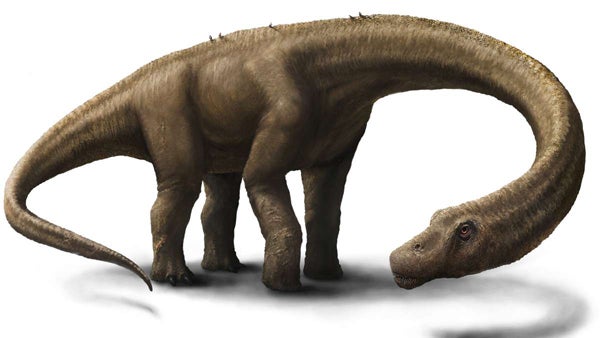
Imagine finding a gigantic dinosaur, seven times bigger than a Tyrannosaurus rex! That’s precisely what Drexel University paleontologist Ken Lacovara did. He led the team that discovered Dreadnoughtus. In this report by Carolyn Beeler, he describes how he found the first piece of bone at a remote field site in southern Patagonia, 100 miles off the power grid and originally reachable only by rafting down a glacial stream.
8. Because you are everywhere we look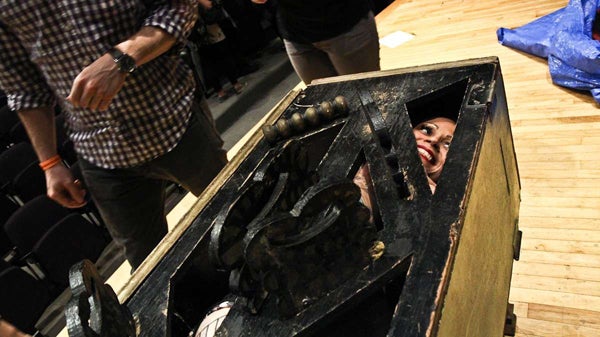
Science happens all around us, in strange places, even at the circus! At a Franklin Institute circus event, reporter Elana Gordon met David Borneo, who is better known as the Human Blockhead. In this instance, science helps him shove giant nails into his face without hurting himself.
So, dear science, thank you for all you do. And please, stay fabulous.
With warm affection and much admiration,
xoxoxoTeam Pulse
WHYY is your source for fact-based, in-depth journalism and information. As a nonprofit organization, we rely on financial support from readers like you. Please give today.




